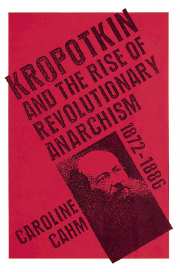Jacques Derrida: Specters of Marx. The State of the Debt, the Work of Mourning and the New International (1993/1994)
Filed under book | Tags: · communism, critique, deconstruction, hauntology, history, labour, marxism, philosophy, philosophy of history, politics, revolution

Prodigiously influential, Jacques Derrida gave rise to a comprehensive rethinking of the basic concepts and categories of Western philosophy in the latter part of the twentieth century, with writings central to our understanding of language, meaning, identity, ethics and values.
In 1993, a conference was organized around the question, ‘Whither Marxism?’, and Derrida was invited to open the proceedings. His plenary address, ‘Specters of Marx’, delivered in two parts, forms the basis of this book. Hotly debated when it was first published, a rapidly changing world and world politics have scarcely dented the relevance of this book.
Originally published as Spectres de Marx, Galilee, 1993
Translated by Peggy Kamuf
With an Introduction by Bernd Magnus and Stephen Cullenberg
Publisher Routledge, 1994
Routledge Classics
ISBN 0415389577, 9780415389570
198 pages
Wikipedia
Publisher
Google books
PDF (updated on 2014-9-5)
Comment (0)Jacques Barzun: Darwin, Marx, Wagner: Critique of a Heritage, 2nd ed (1941–)
Filed under book | Tags: · art, culture, darwinism, evolution, history, marxism, music, philosophy, politics, revolution, science

The nomination of Wagner rather than Freud in the trinity of emblematic modern minds is a sign of Barzun’s profound interest in music and the arts. He argued that these men achieved their reputations by catching the spirit of the age, like surfers on a wave, backed by the formidable public relations exercises mounted by their followers . This earned them the status of intellectual icons despite their lack of originality and the significant flaws in their systems. He described in some detail how all the leading ideas of evolutionary theory, socialism and the leading role of the artist were commonplace for decades before the big three started work.
Barzun was especially critical of the way that their adherents promoted determinism and scientism, with truly disastrous political consequences in the twentieth century. In addition to the shortcomings of their systems, two of the three titans were monstrously egocentric and unprincipled exploiters of their friends and denigrators of their enemies. These personal characteristics became prominent in the modus operandi of their followers, setting the tone for bad manners in transactions between intellectuals that have persisted to the present time.
Reprint of the revised 2nd edition, 1958, with a new Preface, 1981
Publisher University of Chicago Press
ISBN 0226038599
373 pages
PDF (updated on 2014-9-5)
Comment (0)Caroline Cahm: Kropotkin. And the Rise of Revolutionary Anarchism, 1872-1886 (2002)
Filed under book | Tags: · 1870s, 1880s, anarchism, communism, politics, revolution, socialism

This major study of Peter Kropotkin sets him firmly in the context of the development of the European anarchist movement as the man who became, after Bakunin’s death, their chief exponent of anarchist ideas. It traces the origins and development of his ideas and revolutionary practice from 1872 to 1886, and assesses the subsequent influence of his life and work upon European radical and socialist movements. Dr Cahm analyses Kropotkin’s role in the transformation of Bakunin’s anti-authoritarian socialism, and shows how two principal types of revolutionary action emerge from anarchist efforts to develop clear alternatives to the parliamentary strategies of social democrats; one based on the activity of individuals and small groups, the other related to large-scale collective action.
Publisher Cambridge University Press, 2002
ISBN 0521891574, 9780521891578
388 pages

